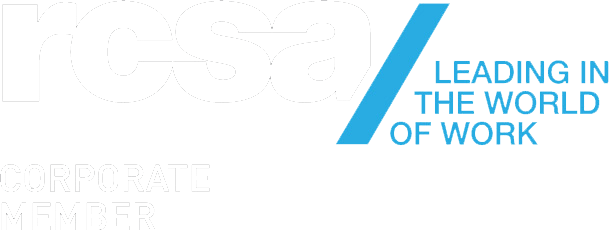How to ensure your CV tells the story of your career effectively and secures you an interview!
According to industry data and a recent eye tracking study, recruiters spend just 6-8 seconds looking at your CV before deciding about whether you are suitable for the position. That's an alarming statistic, but it's unfortunately true. There are other factors to consider such as the number of applications received, deadlines and resources of course but you may be thinking 'why devote so much time to your CV for a job that you might not even get a look at'?
The answer is simple: your CV is your story.
It's the first impression that you make on a potential employer or recruiter, and it's what they'll use to determine whether or not to invite you for an interview. Your CV should be clear, concise, and well-organised - just like a good story. It should tell the reader, why you have made the moves you have, what skills you have gained and how each role plays into your career goals. Furthermore, cover letters are increasingly becoming outdated, so you need your CV to do the talking.
When you're looking for a job, your CV is one of the most important tools in your toolkit. It's your chance to show potential employers what you can bring to the table, but it's not just about listing your qualifications and experience. Your CV should be interesting and engaging so that hiring managers will want to read more. In this blog post, we'll give you some tips on how to craft an effective CV that tells your story and importantly captures the reader's attention.
What you mention on your resume is crucial to the shortlisting process. Make sure you provide enough information so the reader can make an informed decision, as providing too much or too little could disqualify you.
If you engage a trusted recruiter to assist you with your job search, they will already know a lot about you and your background, so they can take this knowledge into account when proposing you for a position. If you go it alone, though, all you have is your CV, so it must stand out. The key is to focus on the aspects of your experience and skills that are most relevant to the job you're applying for. This means you may have a few different versions of your CV depending on the role you are applying for. Avoid a one-size-fits all template, and really take the time to tailor your resume for each role. Carefully pick up on the skills and experience outlined in what the hiring manager is looking for and be sure to qualify and quantify how your skills and experience are relevant and transferable. Do your research on the business and look at aligning your personal values with that of the organisation you are applying to.
So what goes on a winning resume?
Firstly, there are some basic dos and don'ts. Consider the layout and choose a simple design that allows for easy navigation and has plenty of white space, so the recruiter will not be tempted to give your resume a miss due to clutter. Some roles can receive enormous volumes of applications which means yours needs to be a breath of fresh air in a sea of repetitiveness. Don't use ten words when five will do.
Personal information - essential being name, phone number, and email but also nice is adding your LinkedIn profile link. Be mindful of your email address and if it doesn't pass the dinner-table test, then best create a more professional one.
- A career objective - should focus on skills and experiences that are related to the work, as well as long- or short-term goals that you may accomplish.
- Education/Qualifications - academic certifications attained thus far in chronological order, particularly elaborating on those that are relevant to the position applied for.
- Technical Skills - list skills you have been trained in or have acquired in your professional experience so far, including systems experience.
- Professional career experience - in chronological order with the most recent at the top, list the name of your company, designation, tenure, role responsibilities, and key achievements. Outlining your accomplishments are particularly significant. These tell the reader more than simply what was in your job description and demonstrate how hard you worked. These don't need to be lengthy but definitely need to be impactful!
- Volunteering and extracurricular activities - it is worthwhile to note any relevant unpaid roles you have undertaken that helped develop your skills and character. For example, charity work or community involvement.
- Hobbies and interests - we recommend you include your passions on your CV since it is a fantastic method to distinguish yourself from the competition, display to the employer a sense of your personality, and lay groundwork for conversion at the job interview. These should also be kept concise.
- References - it is always best practice to include references on your CV, although some job seekers choose not to. If you do decide to add them, make sure you have the permission of the referee to use their name and contact details.
If you have a few roles of short tenure and/or gaps of unemployment, it's best to explain why so the reader doesn't jump to assumptions regarding your ability to commit to an employer. In terms of length, if you have several years of expertise, there is no need to return to your first position, a CV with two or three pages is ideal. Your resume should be a living document - meaning, you should constantly update it as you gain new experiences and qualifications. Even if you're not actively job-hunting, it's still important to keep your CV up to date.
Finishing touches
Then comes the most important part - spellcheck and proofreading! Nothing diminishes your professional image than bad grammar or incorrect spelling, so do yourself a favour and proofread your resume several times to ensure it is error-free. Get a second opinion too, just to be doubly sure.
Above all, remember that your CV is a marketing tool, so think of yourself as a product. What are the benefits of hiring you? How will you solve their problem? Sell yourself!
Following these tips should help you create a CV that tells your story in an engaging and effective way. Good luck.
Looking for more career advice? Check out our website for more articles like this one. And if you're ready to take your career to the next level, contact us today to see how we can help you find your dream job.





